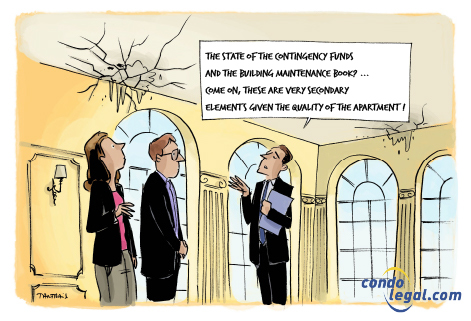 January 27, 2023 – In the summer of 2022, the Government of Quebec not only banned dual representation but since then also requires a broker who accompanies a buyer without a contract, to denounce him with more transparency that he does not represent him and that rather, he represents only the client with whom he is bound by a written contract. What does it mean ?
January 27, 2023 – In the summer of 2022, the Government of Quebec not only banned dual representation but since then also requires a broker who accompanies a buyer without a contract, to denounce him with more transparency that he does not represent him and that rather, he represents only the client with whom he is bound by a written contract. What does it mean ?
First of all, dual representation is a situation in which a broker represents both a seller and a buyer, while he is bound by contract with each of them and the 2 clients wish to make a transaction for the same immovable together. Although rare, this situation simply could not last because the broker was obviously in a situation of conflict of interest. Who could or should he favor in such a situation? Your answer is as good as mine! One thing is now clear, this situation is now prohibited and the legislator now gives precedence to the brokerage for sale contract to the detriment of the brokerage contract to purchase for this immovable. As the saying goes, however, the principle in law is that there are always exceptions. This situation is no exception, especially for remote areas in the provinces where no other broker is available to represent the buyer (certain conditions apply).
As for the other change, it too relates to the notion of conflict of interest. It is now prohibited to represent a client through a verbal brokerage contract. That is to say, it is no longer possible to represent a buying client without a broker being bound in writing with him. It is therefore only through a brokerage contract to purchase that a broker can represent a buyer.
Conversely, a broker who assists or accompanies a buyer (he does not represent him) and who is not the broker bound to the seller by brokerage contract, must demonstrate greater transparency towards this buyer. We will therefore call it a collaborating broker. By means of a new OACIQ form entitled NOTICE OF THE BROKER WITHOUT EXCLUSIVE BROKERAGE CONTRACT – PURCHASE, the broker must make the following mentions:
“A BROKER who has not signed any brokerage contract does not represent or defend the interests of the BUYER. The BROKER works de facto for the seller. The BROKER will provide the BUYER, in an objective manner, with information relevant to the transaction, particularly with regard to the rights and obligations of all parties to the transaction. In all cases, the BROKER must: - verify the information he provides and be able to demonstrate its accuracy; - respect the confidentiality of the information entrusted to him and use the personal information he obtains only for the purposes for which it is transmitted to him; - avoid placing themselves in a situation of conflict of interest. The BROKER may not demand any remuneration or costs from the BUYER. The BROKER may, however, in certain cases, claim compensation from the seller's broker. Where applicable, the BROKER's compensation will be established based on the sharing offer provided for in the seller's brokerage contract. »
But what about a buyer who does not want to be represented and do business directly with the selling broker? Or even a seller who is not represented while the buyer is bound by a brokerage contract to purchase? Is it still possible? The answer is yes. In these cases, the broker involved in the transaction does not have to use the NOTIVE form mentioned above, but it would still be desirable to use a similar one. For what? The broker must still make virtually the same representations to the unrepresented party to the effect that he does not represent this person but verbally. However, it is permitted and desirable for agency executive officers to require a written document from their brokers to this effect.
Now what about the role of the broker involved in such a transaction? Its role is as a collaborating broker, to offer the unrepresented party fair treatment. That is to say, to share important information relating to the transaction with him, provide him with the relevant documentation and fulfill his other duties such as recommending that he have a building inspection carried out. He must also answer the questions of the unrepresented person but cannot advise him unduly, as this person is not his client. He must also protect his client's confidential and/or strategic information in order to ensure his interests prevail.
Considering the above, do you think a buyer or seller should be represented in a real estate transaction by his own broker? You now know the answer !
Me Joël Charron LL.L, Lawyer, chartered real estate broker and AEO
President, co-shareholder and head trainer
Académie de formation immobilière du Québec (AFIQ)
819.661.3148

